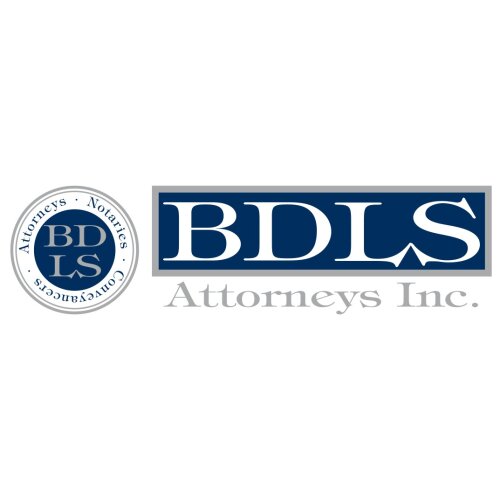Best Debt Capital Markets Lawyers in Port Elizabeth
Share your needs with us, get contacted by law firms.
Free. Takes 2 min.
List of the best lawyers in Port Elizabeth, South Africa
About Debt Capital Markets Law in Port Elizabeth, South Africa
Debt Capital Markets (DCM) refer to the market where entities such as governments, municipalities, and companies raise funds through the issuance of debt instruments like bonds and notes. In Port Elizabeth, as in the rest of South Africa, the DCM is a vital segment of the financial system. It enables organizations to access funding for various purposes such as infrastructure development, business expansion, and government projects. The city’s strategic position in the Eastern Cape, combined with its developing port, logistics, and industrial sectors, makes effective participation in debt capital markets significant for regional growth.
Why You May Need a Lawyer
Engaging in debt capital markets transactions often involves complex legal, regulatory, and financial issues. You may need a lawyer if you are:
- Issuing bonds or notes as a municipality or corporation.
- Investing in bonds or other debt instruments and require due diligence.
- Renegotiating or restructuring existing debt.
- Complying with local and national securities laws and regulations.
- Drafting, reviewing, or interpreting bond documentation and covenants.
- Dealing with cross-border debt offerings or foreign investor regulations.
- Handling default situations or enforcement actions.
Local Laws Overview
The legal landscape governing Debt Capital Markets in Port Elizabeth operates under both national and local statutes. Key aspects include:
- Financial Markets Act, 2012 - Regulates trading in securities, including debt instruments, in South Africa.
- Companies Act, 2008 - Sets rules for company conduct, disclosure, and governance when issuing or managing debt instruments.
- Johannesburg Stock Exchange (JSE) Listings Requirements - Applies to public debt issuances listed on the JSE’s Debt Board, which can originate from any city, including Port Elizabeth.
- Municipal Finance Management Act (MFMA) - Specific rules for municipalities and their ability to borrow through debt capital markets.
- Financial Sector Conduct Authority (FSCA) - The regulator overseeing market participants to ensure investor protection and market integrity.
Frequently Asked Questions
What is a debt capital market?
A debt capital market is a financial marketplace where entities raise capital by issuing debt instruments like bonds, which investors purchase in return for regular interest payments.
Who regulates debt capital market activities in Port Elizabeth?
Debt capital market activities are primarily regulated at the national level by the Financial Sector Conduct Authority (FSCA) and, for public issuances, by the Johannesburg Stock Exchange (JSE). Municipal issuers are additionally subject to the Municipal Finance Management Act.
Can a municipality in Port Elizabeth issue bonds?
Yes, municipalities can issue bonds subject to compliance with the Municipal Finance Management Act and relevant local governance rules. Such issuances often finance infrastructure and development projects.
What types of debt instruments are commonly issued?
Typical instruments include government bonds, municipal bonds, commercial paper, and corporate bonds. Some may be listed on the JSE, while others are privately placed.
What makes debt issuance legally complex?
Debt issuance involves regulatory compliance, disclosure obligations, complex documentation, negotiation with investors, and ongoing reporting requirements, all of which require legal expertise.
Are there restrictions on foreign investors in local debt instruments?
While foreign investors can participate in South African debt capital markets, certain exchange control regulations and reporting requirements may apply, overseen by the South African Reserve Bank.
What happens if an issuer cannot meet their debt obligations?
Default can lead to enforcement actions by creditors, restructuring negotiations, or insolvency proceedings. South African law provides processes for dealing with defaults, and legal advice is crucial in such situations.
Do I need to register debt securities with a regulator?
Generally, public offerings of debt securities must be registered and approved by the FSCA and, if listed, the JSE. Private placements may have different requirements but must still adhere to relevant statutes.
How can a lawyer assist in a debt capital markets transaction?
Lawyers can help with legal structuring, document drafting and review, regulatory compliance, negotiating with counterparties, disclosures, and handling disputes or defaults.
What are the main risks with debt capital market participation?
Key risks include interest rate changes, credit risk (default), regulatory changes, and reputational impact from failed transactions. Legal advice helps mitigate and manage these risks.
Additional Resources
If you need further information or support regarding Debt Capital Markets in Port Elizabeth, consider consulting the following:
- Financial Sector Conduct Authority (FSCA) - Regulator of financial markets and services in South Africa.
- Johannesburg Stock Exchange (JSE) - Oversees the listing and trading of debt instruments.
- South African Reserve Bank (SARB) - Governs exchange control and monetary policy.
- Nelson Mandela Bay Municipality Finance Department - Provides information on local government borrowing and debt management.
- South African Law Society - Directory for finding qualified legal professionals specializing in financial and securities law.
Next Steps
If you require legal assistance in Debt Capital Markets while in Port Elizabeth, begin by identifying your specific needs, such as issuing debt, investing, or handling a dispute. Gather all relevant documentation and background information. Next, consult with a local attorney or a law firm specializing in financial markets and securities law. They can help determine the best course of action, ensure legal and regulatory compliance, and represent your interests in negotiations or disputes. Acting early and seeking professional guidance can prevent complications and help you achieve your financial and business objectives safely.
Lawzana helps you find the best lawyers and law firms in Port Elizabeth through a curated and pre-screened list of qualified legal professionals. Our platform offers rankings and detailed profiles of attorneys and law firms, allowing you to compare based on practice areas, including Debt Capital Markets, experience, and client feedback.
Each profile includes a description of the firm's areas of practice, client reviews, team members and partners, year of establishment, spoken languages, office locations, contact information, social media presence, and any published articles or resources. Most firms on our platform speak English and are experienced in both local and international legal matters.
Get a quote from top-rated law firms in Port Elizabeth, South Africa — quickly, securely, and without unnecessary hassle.
Disclaimer:
The information provided on this page is for general informational purposes only and does not constitute legal advice. While we strive to ensure the accuracy and relevance of the content, legal information may change over time, and interpretations of the law can vary. You should always consult with a qualified legal professional for advice specific to your situation.
We disclaim all liability for actions taken or not taken based on the content of this page. If you believe any information is incorrect or outdated, please contact us, and we will review and update it where appropriate.










